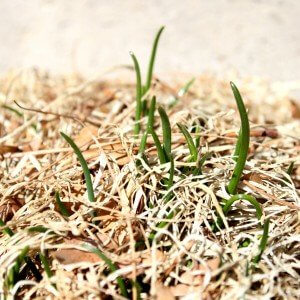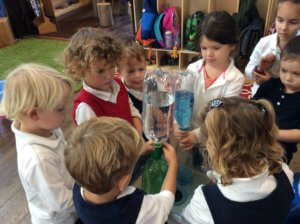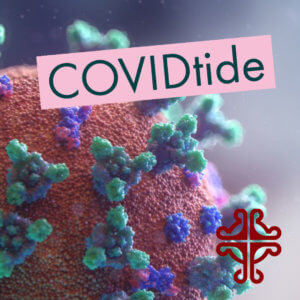On Dying and Rising
John 12:20-33
20 Now among those who went up to worship at the festival were some Greeks. 21 They came to Philip, who was from Bethsaida in Galilee, and said to him, “Sir, we wish to see Jesus.” 22 Philip went and told Andrew; then Andrew and Philip went and told Jesus. 23 Jesus answered them, “The hour has come for the Son of Man to be glorified. 24 Very truly, I tell you, unless a grain of wheat falls into the earth and dies, it remains just a single grain; but if it dies, it bears much fruit. 25 Those who love their life lose it, and those who hate their life in this world will keep it for eternal life. 26 Whoever serves me must follow me, and where I am, there will my servant be also. Whoever serves me, the Father will honor. 27 “Now my soul is troubled. And what should I say–“Father, save me from this hour’? No, it is for this reason that I have come to this hour. 28 Father, glorify your name.” Then a voice came from heaven, “I have glorified it, and I will glorify it again.” 29 The crowd standing there heard it and said that it was thunder. Others said, “An angel has spoken to him.” 30 Jesus answered, “This voice has come for your sake, not for mine. 31 Now is the judgment of this world; now the ruler of this world will be driven out. 32 And I, when I am lifted up from the earth, will draw all people to myself.” 33 He said this to indicate the kind of death he was to die.
“Sir, we wish to see Jesus.”
We don’t know who came to Philip with that request. And it’s not clear whether those Greeks actually got their wish.
 Philip took it to Andrew and they went to Jesus, who gave them a curious reply: “The hour has come for the Son of Man to be glorified. Very truly, I tell you, unless a grain of wheat falls into the earth and dies, it remains just a single grain; but if it dies, it bears much fruit. Those who love their life will lose it, and those who hate their life in this world will keep it for eternal life.”
Philip took it to Andrew and they went to Jesus, who gave them a curious reply: “The hour has come for the Son of Man to be glorified. Very truly, I tell you, unless a grain of wheat falls into the earth and dies, it remains just a single grain; but if it dies, it bears much fruit. Those who love their life will lose it, and those who hate their life in this world will keep it for eternal life.”
That’s a pretty dramatic response to a simple request, and it seems like a non sequitur. But it’s not. Although this is only the twelfth chapter of John, Jesus and his disciples have already come “up to Jerusalem” for the climactic Passover. Jesus has just raised Lazarus from the dead, and the religious authorities are plotting to kill him AND Lazarus. So it is time that Jesus told his disciples what lies ahead.
He uses a poignant metaphor of sacrifice: the grain of wheat that must die to “bear fruit”. Indeed, Jesus would die, and his death and resurrection would bear unimaginably abundant fruit.
Of course, the grain of wheat doesn’t really die. Instead, like the caterpillar that becomes a butterfly, it is transformed into a new plant. It undergoes a metamorphosis, as Jesus would from human form to the Risen Christ. Jesus’ followers believe that death is not the end for us, either; as we pass from this life, we, too, somehow, rise to another one.
We Are Transformed
In the meanwhile, all through this life the metaphor of dying and rising holds true, as each of us grows and changes. Over and over we are transformed, leaving things behind, having “little deaths” from which we rise again into the next phase of life. It begins at the beginning: being born, a child has to “die” to the safe harbor of the womb. And it continues as children grow. Their getting taller and growing out of clothes and shoes are outward signs of tremendous internal changes. At the same time, parents have to transform to keep up, leaving one set of skills and taking on the next, as their children move from diapers to ABCs to AP Organic Chemistry.
 The “little deaths,” of a growing child or maturing adult mostly are a timely part of the natural order. But others are not. They come, uninvited and unwelcome: when a key relationship ends, or a career does; when an injury halts a favorite activity; when a dramatic diagnosis derails a life in progress. That is when Jesus’ words can really come home and we can better grasp what it truly means to die to something, to “lose your life”.
The “little deaths,” of a growing child or maturing adult mostly are a timely part of the natural order. But others are not. They come, uninvited and unwelcome: when a key relationship ends, or a career does; when an injury halts a favorite activity; when a dramatic diagnosis derails a life in progress. That is when Jesus’ words can really come home and we can better grasp what it truly means to die to something, to “lose your life”.
I had to die to nearly 30 years of life in art museums when I was forced out of a high-level post. It was painful. It was humbling to be suddenly stripped of my professional place, power, activity and identity.
And it was a blessed transformation. I came to know that being a child of God was my true, enduring identity. It was all I would ever need. And being unemployed, I got quiet long enough to rise into my vocation as a priest.
Everything at a Standstill
Until March 2020, those unwelcome “little deaths” were private, individual experiences. Today, virtually everyone in the world could own the metaphor. Overnight, a novel coronavirus brought everything to a standstill. Since December 2019, there have been more than 120 million Covid-19 cases worldwide, and more than 2.65 million fatalities. Those numbers are staggering. But every case, every passing has also transformed the lives of many more: family, friends, colleagues.
 Governments everywhere shut down to protect their citizens. That radically changed the way we live. Countless millions have had to die to jobs, homes, or businesses. Some, like our gifted Rector Della, have adapted creatively, reinvented their enterprises, and risen to new ways of living and working. But far too many still have not. They need our prayers.
Governments everywhere shut down to protect their citizens. That radically changed the way we live. Countless millions have had to die to jobs, homes, or businesses. Some, like our gifted Rector Della, have adapted creatively, reinvented their enterprises, and risen to new ways of living and working. But far too many still have not. They need our prayers.
Everyone, everywhere has had to die–at least temporarily–to the simplest pleasure: gathering together with family and friends at home for holidays, in church, in festivals, in sports, in celebrations. We have risen to the truth that those “ordinary” encounters are precious, that sharing hugs and handshakes, seeing the joy or sorrow written on an unmasked face matter more than we ever imagined.
Stymied by a virus particle 2000 times smaller than a dust mite, residents of the US, Europe, and Japan have had to die to the illusion that our economic, technological, and scientific prowess made us invulnerable. Our medical science rebounded, creating and distributing vaccines at an unprecedented speed. But it will take years for the economy and its victims to recover. Tragically, poverty in our wealthy nations has soared.
Ubuntu
Covid-19 is primarily a disease of developed world. It was first spread internationally by business travel from China to our West Coast and onward, but also by tourism, from the ski slopes of Europe and Colorado all across the Northern hemisphere. It is humbling to note that the rate of deaths is far lower on the vast continent of Africa, an area larger than the United States, China, India, Europe and Japan combined, home to a billion people and with very fragile healthcare systems. Why? Different from the individualism of the West, throughout African people see themselves as part of humanity as a whole. It’s expressed in the word Ubuntu, translated “I am because we are”. Because of that, people took action and precautions quickly, to care for one another.
Covid-19 is teaching us many lessons about ourselves as individuals, as nations, as societies. In the US, for example, we awoke to our radical dependence on employees in hospitals, schools, nursing homes, grocery stores, the postal system, garbage collection, military, police and fire departments. Dubbed “essential workers,” though many are poorly paid, these everyday heroes had to keep working through the shutdowns. We learned how inequities in education, employment, and health care made the virus much more deadly—particularly to people of color. As global business and leisure travel plummeted, so did air pollution–a clear cautionary lesson to would-be frequent flyers like me.
Covid-19 isn’t done with us yet. But there is reason to hope.
God willing, this is a unique moment in our lives. Before we get swept up into busyness again, I hope each of us will take stock of what we have learned. That’s my plan for Holy Week and Good Friday. What have we “lost” that has made us a better person, possibly a better people? What can we take on for the good of others? What can we leave behind that has harmed us? Our planet? What perspectives or practices have we gained that we want to keep?
“Sir, we wish to see Jesus.” Jesus’ reply was an invitation. If we “wish to see Jesus,” we can follow him into the hard places, the places where we are called to die so that we can rise, to lose our life so that we can find it. We won’t be alone. The Risen Christ will be there, blessing every transformation and glorifying every resurrection.
